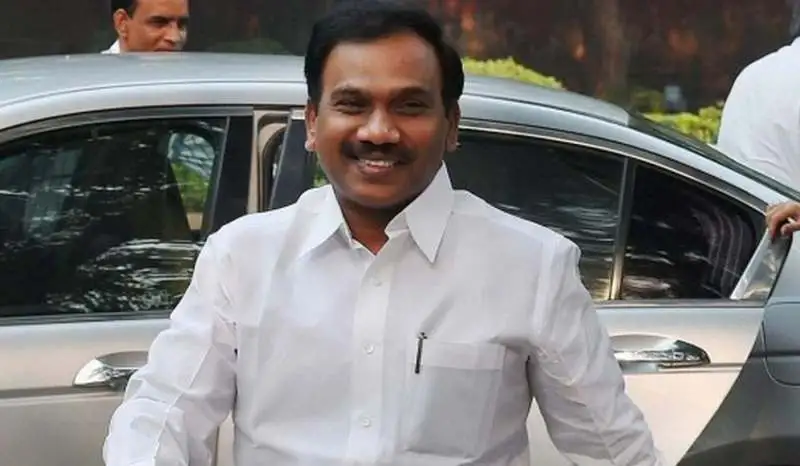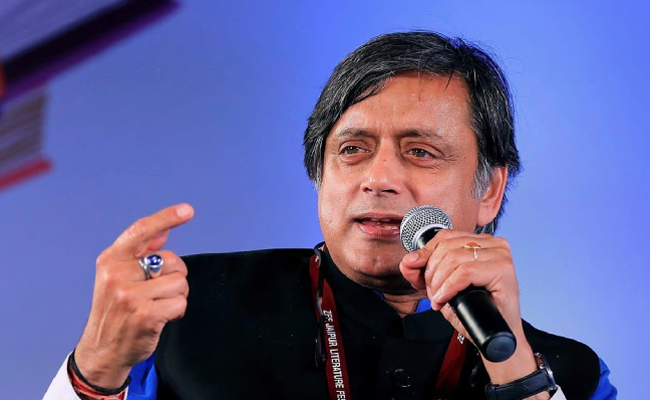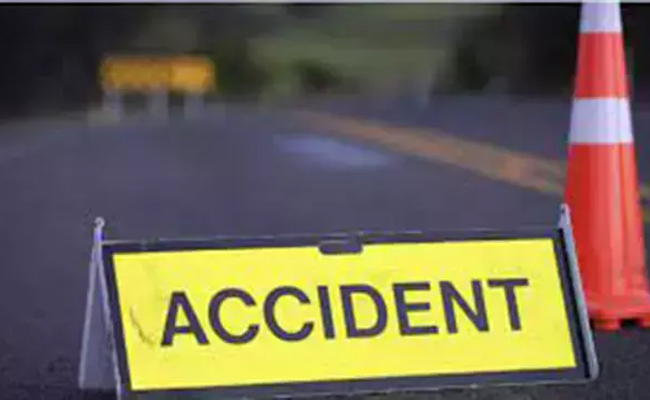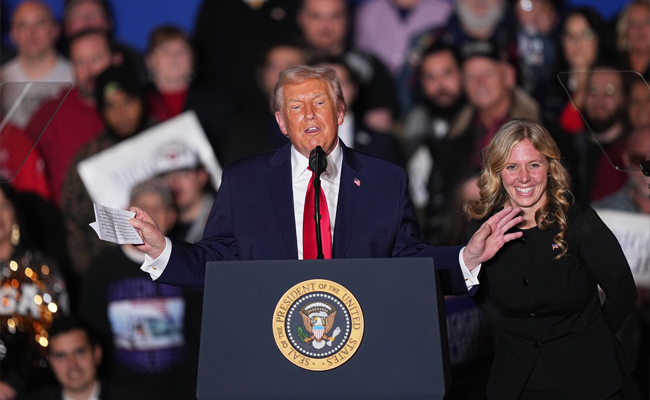Chennai, Sep 13: DMK deputy general secretary A Raja stoked a controversy over his Shudra remark and drew BJP's ire with the saffron party accusing him of spewing hatred against a community to appease others.
Shudras, the Nilgiris MP claimed, were insulted in Manusmrithi and denied equality, education, employment and entry into temples.
"You are a Shudra till you remain a Hindu. You are the son of a prostitute till you remain as Shudra. You are a Panchaman (Dalit) till you remain a Hindu. You are an untouchable till you remain a Hindu," Raja said while addressing a meeting of Dravidar Kazhagam here.
In a video that went viral in social media he was heard saying "how many of you wish to stay as children of prostitutes? How many of you wish to remain untouchables? Only if we are vocal about these questions, it will become elemental in breaking Sanathana (dharma)."
The former Union Minister claimed that the Supreme Court had ruled that if one is not a Christian, Muslim or Persian, then one has to be a Hindu. "Is there any other country meting out such cruelty?" he wondered.
Raja, who took to Twitter to express his view, asked "Who are Shudras? Are they not Hindus? Why have they been insulted in Manusmrithi and denied equality, education, employment and temple entry. The Dravidian movement, as a saviour of 90% of Hindus, questioned and redressed these, cannot be anti-Hindus."
Flaying him, BJP State chief K Annamalai termed his justification as "a sorry state of political discourse in Tamil Nadu."
"@arivalayam MP has yet again spewed hatred against one community with the sole aim of appeasing others. Very, very unfortunate mindset of these political leaders who think they own Tamil Nadu," he tweeted.
BJP Mahila Morcha national president Vanathi Srinivasan said Raja has insulted the women and Hindus on numerous occasions. This time too, he has spewed venom stating that all Shudras are children of prostitutes and they will remain so until they remain in Hinduism.
Who are Sudras? Are they not Hindus? Why they have been insulted in Manusmrithi denied equality, education, employment and Temple entry. Dravidian Movement as saviour of 90% Hindus questioned and redressed these, cannot be anti-Hindus.
— A RAJA (@dmk_raja) September 13, 2022
Sorry state of political discourse in Tamil Nadu. @arivalayam MP has yet again spewed hatred against one community with the sole aim of appeasing others.
— K.Annamalai (@annamalai_k) September 12, 2022
Very very unfortunate mindset of these political leaders who think they own Tamil Nadu. pic.twitter.com/UntspDKdQ3
Let the Truth be known. If you read VB and like VB, please be a VB Supporter and Help us deliver the Truth to one and all.
New Delhi (PTI): Congress leader Shashi Tharoor on Saturday, while lauding the win of the UDF in Kerala local bodies elections, also congratulated the BJP for its historic performance in his Thiruvananthapuram constituency, calling it the "beauty of democracy".
In a post on X, he said the people's verdict must be respected, whether for the UDF overall or for the BJP in his constituency.
"What a day of amazing results in the Kerala local self-government elections! The mandate is clear, and the democratic spirit of the state shines through.
"A huge congratulations to @UDFKerala for a truly impressive win across various local bodies! This is a massive endorsement and a powerful signal ahead of the state legislative elections. Hard work, a strong message and anti-incumbency have all clearly paid off to achieve a much better result than in 2020," Tharoor said.
He said he also acknowledges the historic performance of the BJP in Thiruvananthapuram, and "offer humble congratulations on their significant victory in the city corporation - a strong showing that marks a notable shift in the capital's political landscape."
Tharoor said he campaigned for a change from 45 years of the LDF "misrule", but the voters have ultimately rewarded another party that also sought a clear change in governance.
"That is the beauty of democracy. The people's verdict must be respected, whether for the UDF overall or for the BJP in my constituency.
"We will continue to work for the betterment of Kerala, advocating for the people's needs and upholding the principles of good governance. Onwards and upwards!" Tharoor, who is the MP from Thiruvananthapuram, said.
The lotus bloomed in the state capital as the BJP-led NDA achieved a resounding win in the polls for the Thiruvananthapuram Corporation, snatching it from the CPI(M)-led LDF and marking an end to 45 years of continuous Left rule in the local body.
The win in the Thiruvananthapuram Corporation will act as a boost for the BJP in the 2026 Assembly polls, especially in the state capital.
Of the 101 wards in the Thiruvananthapuram Corporation, the BJP won 50, LDF 29, UDF 19 and two wards were won by independent candidates.
The BJP is one seat short of a decisive majority in the corporation.
Besides this, the NDA retained the Palakkad municipality after a close battle with the Congress-led UDF and wrested the Thrippunithura Municipality from the grand old party.
In Thrissur, from where Suresh Gopi won in the Lok Sabha polls last year, the BJP won 18 out of the 46 wards in Kodungallur Municipality, eight in Thrissur Corporation, two each in Guruvayoor and Vadakkancherry municipalities, seven in Kunnamkulam Municipality, six in Irinjalakuda Municipality and one in Chalakudy Municipality.





